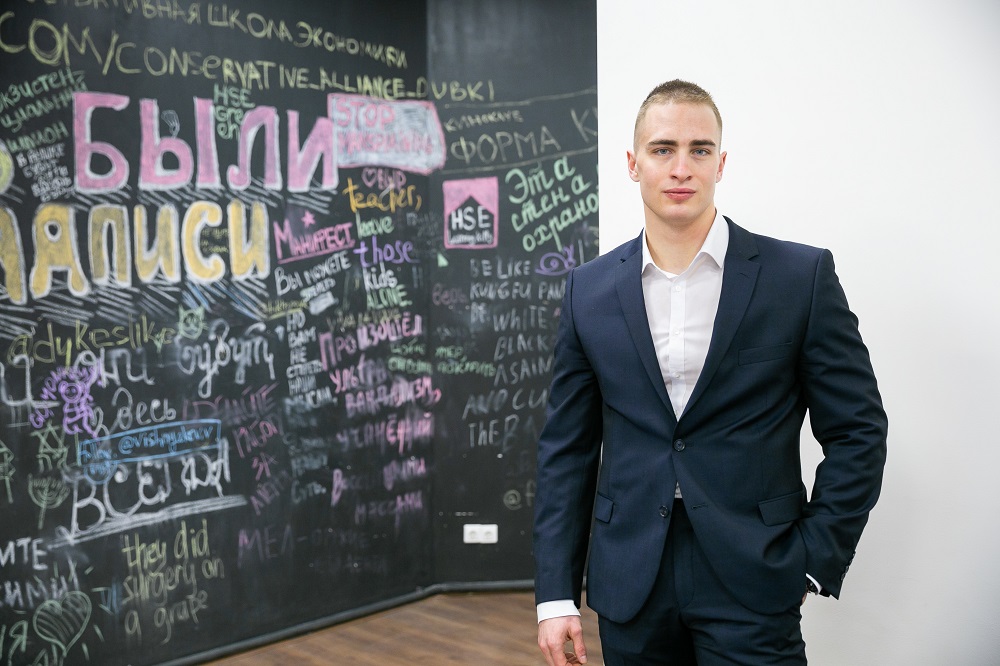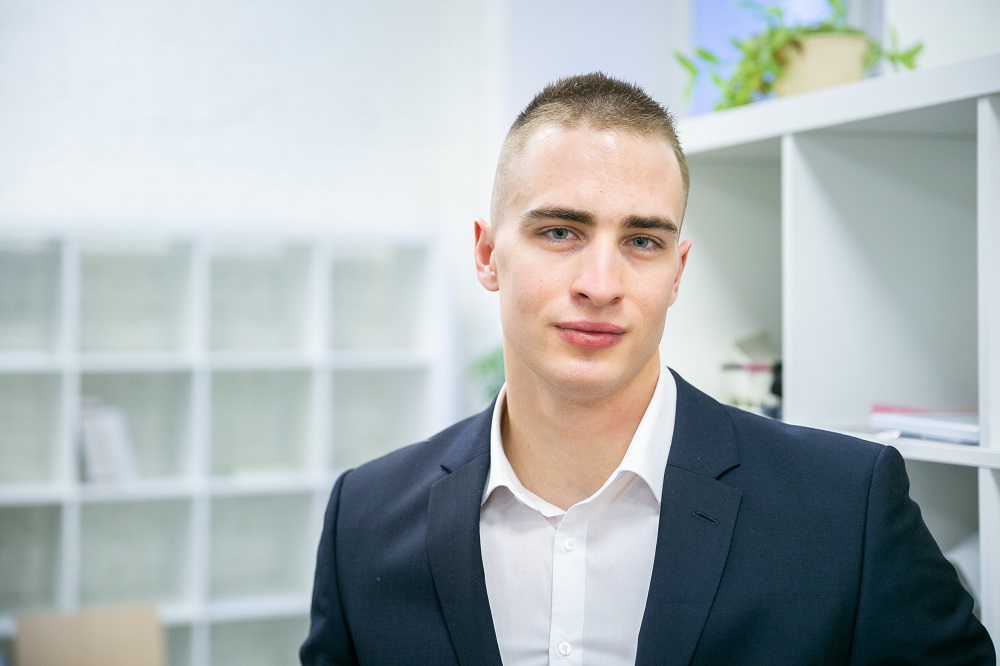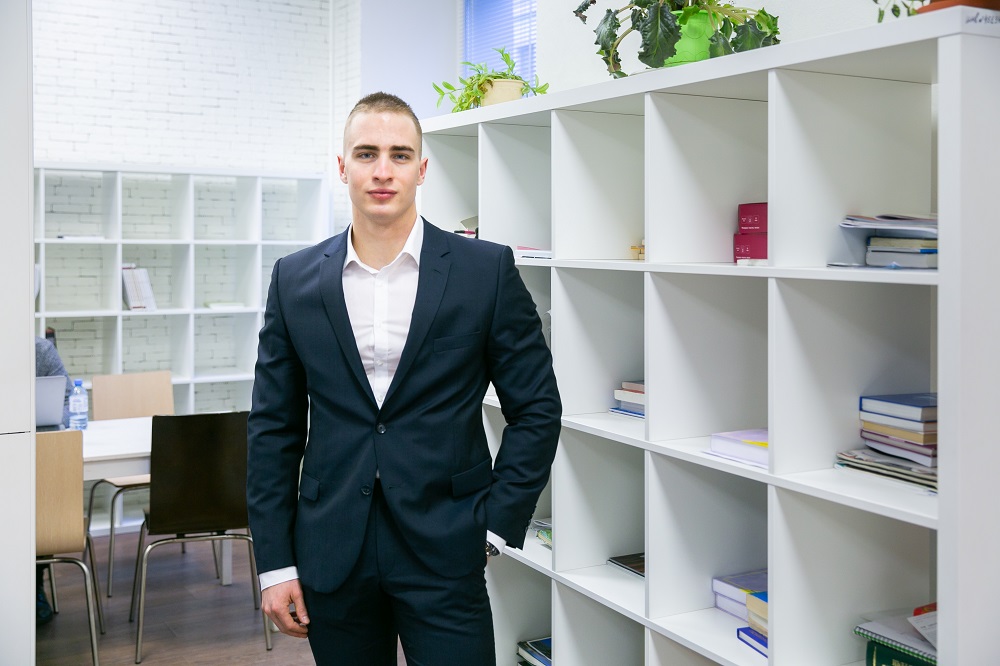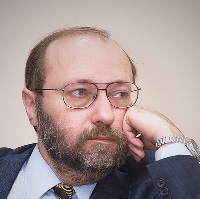Former Exchange Student Stays on at HSE to Pursue a Master’s in Financial Analysis

Stefan Hanssen, a native of Switzerland, is currently a second-year student in HSE’s Master’s Programme 'Financial Analyst (CFA Institute University Affiliation Program)' offered by the HSE Banking Institute. He received his Bachelor’s degree in Business from HEC Lausanne (the Faculty of Business and Economics of the University of Lausanne), and decided to come to Moscow to deepen his knowledge of finance, economics, and business, and to expand his professional network.
Choosing the programme
In the business programme at HEC Lausanne, where I received my Bachelor’s, students are able to do an exchange programme after their second year. When I was looking at the list of possible places to study, I saw HSE. It was the first year that my university had an exchange agreement with the HSE campus in Moscow, and my advisor told me good things about it. I looked into it and saw that it was highly ranked, so I decided, why not Moscow? In light of European economic policy and the current economic situation there, Russia, in my view, represented a great opportunity for my professional future in the sphere of business and economics. So, actually, before coming here as a Master’s student, I first came here as an undergraduate exchange student at the School of Finance in HSE’s Faculty of Economic Science. liked my experience there so much that I decided to continue on and apply to the Master’s Programme ‘Financial Analyst (CFA Institute University Affiliation Program)’ in the HSE Banking Institute.
I was drawn to the Master’s programme in financial analysis because of the courses and the professors. For me it’s really important that a professor have previous experience working in the financial sphere, and not solely in teaching. Unlike in my previous studies, which were more theoretical, I liked how a lot of the professors in my current programme have worked in the financial sector. They bring firsthand financial experience to the classroom—not simply a theoretical financial model. Plus, I had a very good relationship with my supervisor at the HSE Banking Institute, Professor Vasily Solodkov, which also motivated me to apply for this Master’s programme and remain at HSE.
Now, here I am, still in Moscow. I have been here for 1 and a half years. My plan is to stay here in Moscow and get more experience with quantitative analysis, trading, and the general sphere of banking. I would like to expand my professional network here, because I think there is a lot of potential for collaboration between Switzerland and Russia.

Stefan Hanssen, second-year student in HSE’s Master’s Programme 'Financial Analyst (CFA Institute University Affiliation Program)'
© Mikhail Dmitriev/ HSEProject work
As I said, it was really the firsthand work experience of the professors that attracted me to the programme. Now, I am getting some experience of my own. This year I began an internship at the Institute for Statistical Studies and Economics of Knowledge where I am conducting research on the application of blockchain technology in the financial sphere of Europe. I am studying its evolution and possible future applications, as well as looking into the ways this new technology can be regulated.
One thing I’ve particularly enjoyed about my internship is seeing how people work in Russia in comparison to my experience in Switzerland. It’s quite interesting. I would say that in my work here at the Institute, we have more freedom. We are of course supervised, but we are not as, I would say, regulated. In Switzerland, if you are given, say, tasks A, B, and C to complete, you have to complete them in a predetermined order, in a predetermine way, etc. Here, on the other hand, I have specific tasks to complete, but the way I do them is my own choice, and when I provide my results to my supervisor, we have a very interesting discussion.
I have found this kind of flexibility in my coursework as well. I can bring my own experience to the classroom, or ask a question, and a professor might change part of the course in order to address my question more fully or incorporate issues I’m interested in.
 Stefan Hanssen, second-year student in HSE’s Master’s Programme 'Financial Analyst (CFA Institute University Affiliation Program)'
Stefan Hanssen, second-year student in HSE’s Master’s Programme 'Financial Analyst (CFA Institute University Affiliation Program)'
Living in Moscow
One thing that surprised me when I first got here was that not a lot of people speak English. But, in the end, this was actually a good thing. If everyone you meet speaks English, you will not learn Russian. Though I don’t have a lot of time outside of my studies, I have started studying Russian at home, which I enjoy.
I really like Moscow. It’s very different from Lausanne, which is a small city. I really like the atmosphere here—it’s a 24-hour city that never sleeps. I can call friends to go out—or even colleagues about something research-related—at 3 in the morning, and they will answer! In Switzerland, things are a bit more regimented.
There’s also so much to do. I now have a VK account—it’s like Russian Facebook—and I communicate there with a lot of foreign student groups and HSE student groups. Usually every couple weeks I go out with both foreign and Russian friends, and we chat in English. I also participate in a chess club. I’ve always loved chess, and, as it turns out, Russians are really good at it! A group of us (about 15-20 people) meets up at a bar every so often to talk chess and play.

Professor Vasily Solodkov, Academic Supervisor of the programme
The Master’s Programme ‘Financial Analyst’ is unique in that it is a CFA Institute partner and therefore directly integrated into the international context. Our programme is English-taught by leading Russian and international experts in the field of finance who hold international professional accreditations such as as CFA, FRM, ACCA, etc. Our faculty members combine deep theoretical knowledge with their practical experience, offering real cases to study in the classroom.
With growing numbers of international applicants joining our programme, we offer a culturally diverse atmosphere in which our students can enrich their intercultural communication skills and expand their professional networks.
The Master’s Programme “Financial Analyst” offers student exchange agreements with well-known European universities such as the University of Applied Sciences BFI Vienna, Wroclaw University of Economics, and the University of Economics in Katowice.
Our partners offer not only long-term programmes, but also short-term tracks for exchange. Even if you work during your studies, you still have the opportunity to participate in an exchange programme and expand your international professional network. Moreover, our students can take advantage of Erasmus+ grants for financial support.
With world trends in mind, we provide students the opportunity to receive job training while they pursue their degree. We also arrange internships for our Master’s students with leading company-partners doing work that relates to students’ thesis topics.
Though there are currently only full-tuition positions available in the programme, the CFA Institute offers fellowships every year for students who score highly on all three levels of the CFA exams. The majority of our graduates are now successfully employed in the financial industry in Russia and abroad, and we believe this attests to the high quality of our programme.

